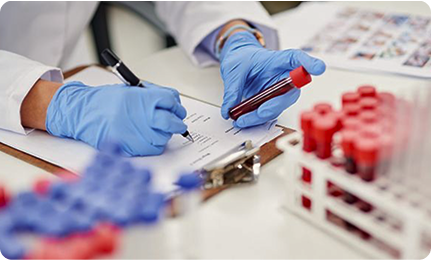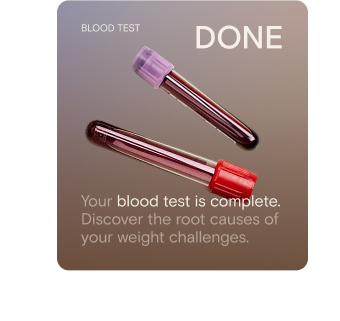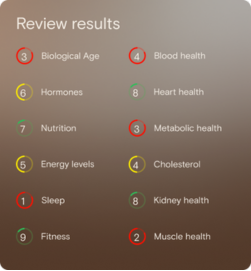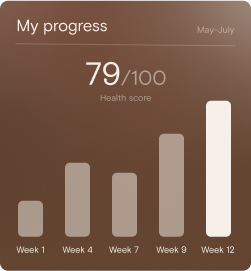What is the C-reactive protein/albumin ratio (CAR)?
CAR is a straightforward ratio of two measurable blood-markers: CRP (which increases during systemic inflammation) and albumin (which decreases when inflammation is persistent or when liver synthetic function or nutritional status is challenged). The ratio therefore captures the dynamic interplay of inflammation and synthetic reserve in one index.
Why does CAR matter for long-term health and wellbeing?
Chronic low-level inflammation and diminished protein-synthesising capacity are subtle influences that gradually erode metabolic efficiency, recoverability, immune resilience and overall physiological reserve. By giving you a lens into both sides of that equation—‘how inflamed am I?’ and ‘how well is my body managing protein/organ-synthesis?’—CAR provides actionable insights for optimising energy, metabolism and longevity rather than waiting for overt dysfunction.
What’s an optimal level of CAR?
Here are typical Australian-based adult reference points:
- CRP (serum): median ~0.8 mg/L; 90 % of healthy individuals <3 mg/L.
- Albumin (serum): typical adult reference 32–45 g/L. Exact “optimal” CAR for wellness and performance is not yet firmly established; however, as a guide:
- Reference range: For albumin 32–45 g/L; for CRP typically <3 mg/L in healthy adults.
- Optimal range (for proactive health-tracking): A conservative target might be a CAR < 0.1 (i.e. CRP in low single-digit mg/L and albumin toward the upper end of its range).
(Note: If albumin is 40 g/L and CRP is 2 mg/L, CAR = 2 ÷ 40 = 0.05.) Because laboratories vary, interpret changes over time more than a single cut-off.
What influences CAR levels?
Several lifestyle and physiological factors can influence CAR:
- Increased CRP (raising the ratio): bouts of acute or chronic inflammation (e.g., exercise recovery, infection, sleep disruption, obesity, highly-processed diet, environmental toxins).
- Decreased albumin (raising the ratio): sub-optimal dietary protein intake, insufficient calories, impaired liver protein synthesis (e.g., through poor sleep or over-training), chronic stress, or higher fluid overload.
- Improvements (lowering the ratio): consistent high-quality protein nutrition, effective anti-inflammatory habits (e.g., adequate sleep, movement, plant-rich diet), maintaining healthy body composition, and optimised liver/metabolic function.
What does it mean if CAR is outside the optimal range?
If your CAR is higher than your personal baseline or above the target range, this signals an imbalance: either inflammation is elevated, protein-synthetic reserve is slipping, or both. In a proactive wellness context, this is a signal to refine your recovery, nutrition, activity and stress-management strategy rather than waiting for overt symptoms. Tracking CAR over time supports timely adjustments and helps ensure your body remains resilient, energetic and responsive.
How can I support healthy CAR levels?
To help maintain a healthy ratio:
- Prioritise quality protein intake each day (e.g., lean animal or high-quality plant sources) to support albumin synthesis.
- Emphasise whole-food nutrition rich in anti-inflammatory nutrients (omega-3s, phytonutrients, fibre) and minimise highly processed refined food.
- Maintain consistent sleep (7-9 h per night), reduce chronic stress via recovery practices (meditation, gentle movement), and avoid over-training.
- Prioritise regular but moderate activity (a combination of aerobic and resistance training) which supports metabolic health without driving chronic inflammation.
- Monitor changes in body composition (lean mass vs fat mass) and minimise excess visceral fat, as adiposity is linked to higher CRP.
- Consider periodic blood testing (including CRP and albumin) under the guidance of a qualified practitioner, and review results longitudinally to see how lifestyle modifications are influencing the ratio.
This information is provided for general health and wellness purposes only and does not replace medical advice.
References
- Reeves G. C-reactive protein. Aust Prescr 2007;30:74-6.
- Albumin – RCPA Manual Pathology Tests.
- Pathology Tests Explained – Albumin reference intervals.
- Nguyen AL; Brick C; Liu D; et al. Clinical utility of CRP-to-albumin ratio. JGH Open 2024.




















.png)


.svg)

